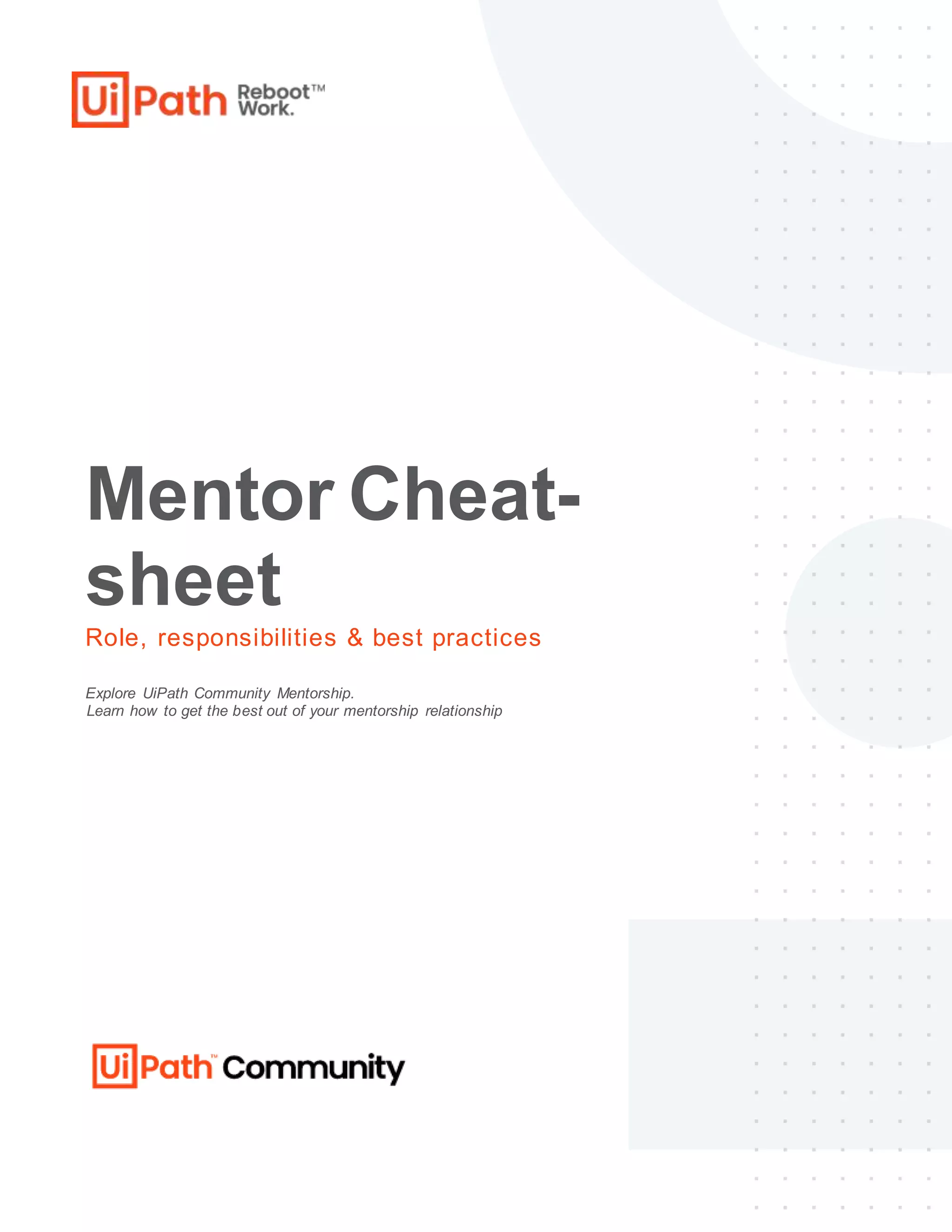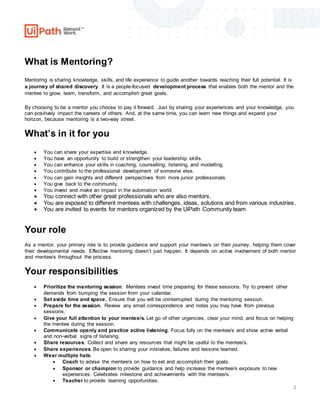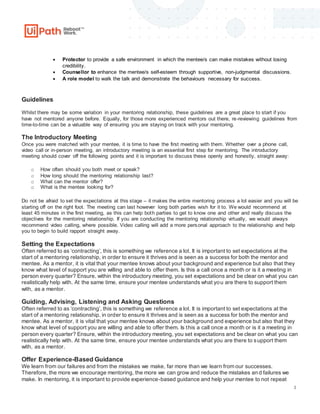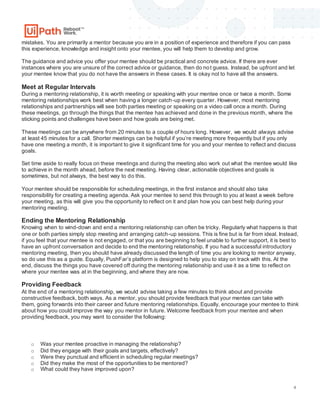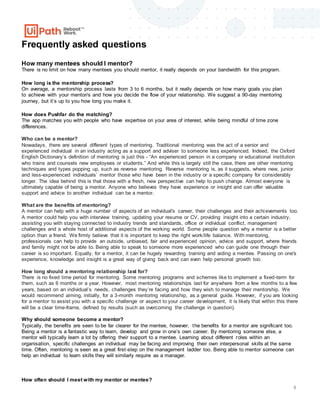The document provides guidance for mentors on their role and responsibilities in a mentoring relationship. It discusses that mentoring involves sharing knowledge and experience to help others reach their full potential. As a mentor, one should prioritize mentoring sessions, set expectations, provide guidance based on their experience, meet regularly with their mentee, and provide feedback at the end of the relationship. Effective mentoring requires active involvement from both parties throughout the process.
